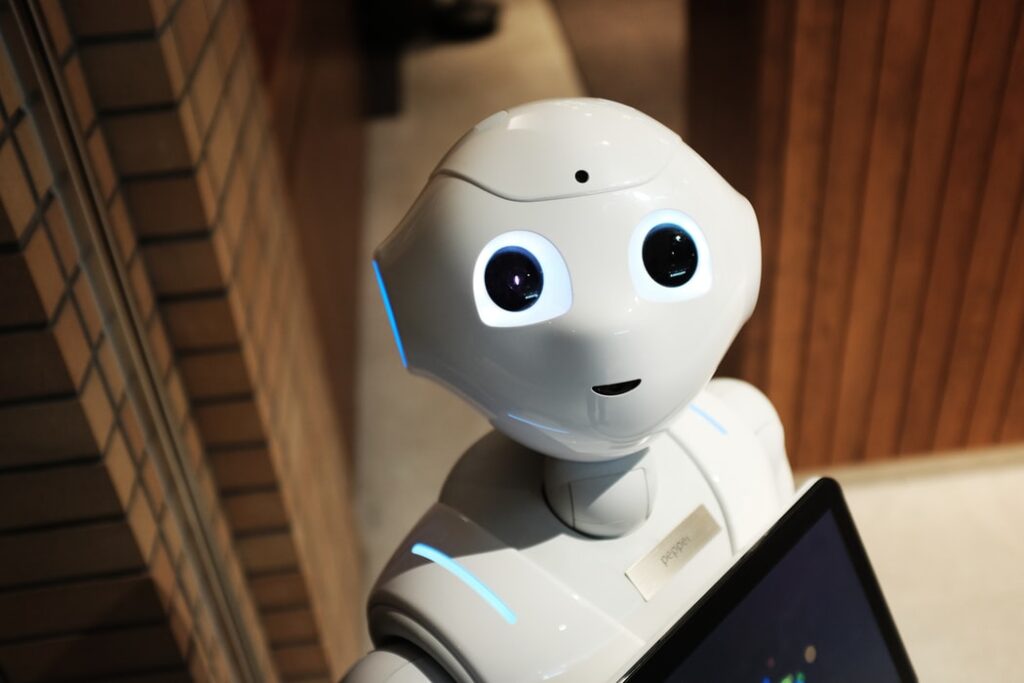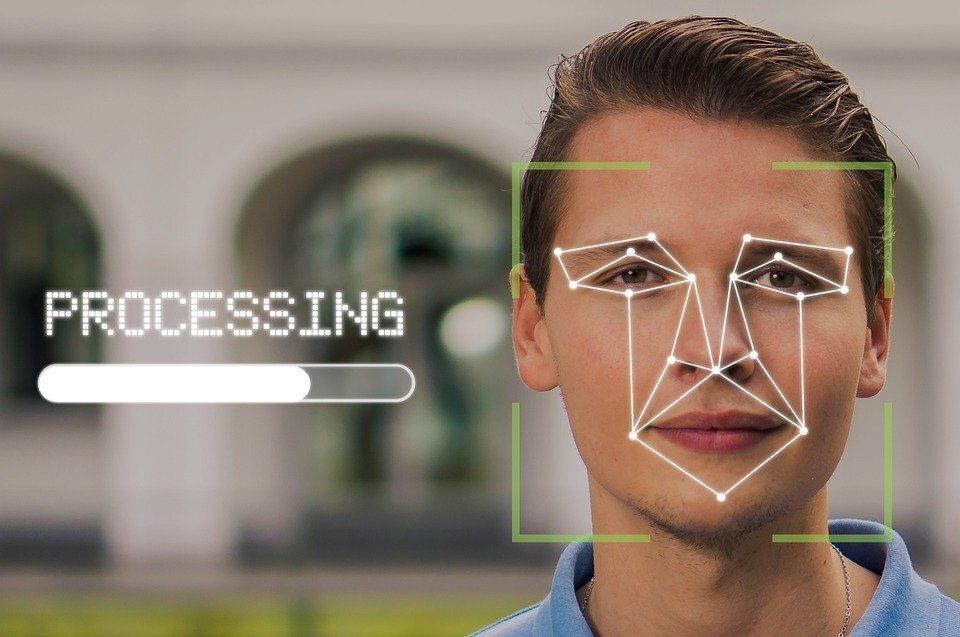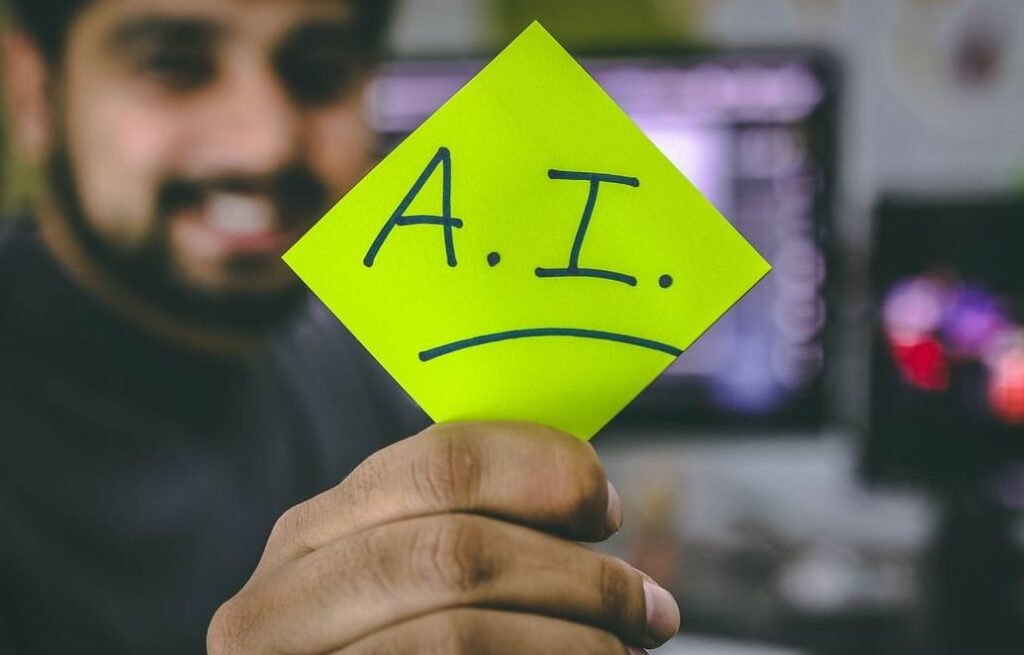Artificial Intelligence stands proudly among the best inventions in human history. Judging by the potential impact on the civilization, we would have to put it alongside the steam engine, electricity, and the internet. Some experts warn about the less pleasant implications. Others only see the bright side.
Undoubtedly, a steady and cautionary AI development process is advisable. We can observe some of AI’s application in real-life situations even now, but one cannot help but wonder that there is much more to accomplish. Most experts agree that it is a long way until we have human-level smart robots.
The AI system based on the Deep Learning paradigm, which is most of them, can calculate and make complex operations incredibly faster than people. However, intelligence is a multi-dimensional ability that can be defined on many levels. To this day, no AI has passed the Turing test, which is how we measure whether the machine demonstrates the intelligent behavior equivalent to a human.
It did not stop Artificial Intelligence from beating the best of us on numerous occasions.
Durability and no room for error

img source: freepik.com
One of the most apparent advantages a machine could have over a human being is the lack of physical limitations. Robot workers do not tire as quickly, they do not need toilet and lunch breaks to do their job. And they do it better anyway, that is if we are talking about repetitive tasks. The ever-growing development in automation in manufacturing does not surprise anyone anymore.
With the right algorithm and programming, there is also no room for error in the way machines operate. Perhaps, in the future, in every conceivable area where a mistake can bring dire consequences, we will see machine-operated systems.
What seems to be developing at a relatively fast pace these days is a self-driving car concept. It is supposed to be much safer than human-operated vehicles, which could save thousands of lives and considerable amounts of money.
The grandmaster of chess

Img source: pixabay.com
Netflix viewers are probably familiar with the chess craze that a hit production Queen’s gambit had started in 2024. But even the brilliant Beth Harmon probably wouldn’t stand a chance against the Deep Blue – a chess-playing computer developed by IBM. The human battle against machines in that department attracted a lot of attention from the very beginning.
Since the 1980s, computers started to win over good chess players. But playing well is not the same as playing on a genius level. An undisputed world champion, Garry Kasparov (1985-1993), was a notably bigger challenge. He had found its match when Deep Blue defeated him in 1997 after the Russian grandmaster noted a convincible 4-2 victory a year before. However, in all fairness, not everybody agreed that the match conditions were equal to both sides.
Since the last significant human vs. computer match in 2019, lost by grandmaster Vladimir Kramnik, commercially available chess programs have been able to win over the strongest human opposition. More recently, even those available on mobile devices.
The speed and strategy

img source: unsplash.com
Chess isn’t the only game where machines managed to impress. They broke a couple of records in speedcubing. In 2016, a bot called Sub1 Reloaded completed a Rubik’s cube in 0.637 seconds. Then a little machine constructed by Jared Di Carlo and MIT Biomimetic Robotics Lab student Ben Katz broke that record with an astonishing time of just 0.38 seconds. The current fastest human speedcuber Yusheng Du has his personal best established at 3.74 seconds.
Artificial Intelligence also seems to have a knack for a notoriously tricky strategy game Go. A computer program called AlphaGo, developed by DeepMind Technologies, later acquired by Google, defeated the Go world champion in 2017.
Korean player Ke Jie didn’t lose by much, but it was enough to baffle those who believed such an outcome was 20 years away. By playing almost perfectly and pushing AI to its limits, Ke Iie felt disappointed with the final result. The game of Go is considered to be much more challenging to computers than chess.
What are we dealing with?

Img source: pixabay.com
Another thought-provoking news comes from the world of poker. This popular card game is an exciting example of a complex game with seemingly uncomplicated premises. Numerous websites and portals such as PokerNews contain useful information on the subject, often analyzing it from various perspectives. It requires a great deal of critical thinking, as well as some math skills, and strategic thinking. To outsmart your opponents, you also have to have other tricks up your sleeve, such as the ability to bluff and read other people.
It seems like typical abilities associated with humans, so it would be quite exciting to know how AI can do in this field. Previous AI victories involved a heads-up no-limit poker match. With just two players facing each other, it was a zero-sum game, which had to result in one clear loser and one winner. However, in 2019, the AI called Pluribus managed to beat human poker professionals in a six-player no-limit Texas Hold ’em game. It came much closer to a real-life scenario because one player had to make the best decision possible without knowing multiple oppositions’ thought processes.
Superhuman

Img source: pexels.com
One can think of more areas of life where Artificial Intelligence has us beaten without a doubt. AI, unsurprisingly, analyzes data much more efficiently. MIT has come up with software that is beating most human researchers in creating predictive data models based on raw datasets.
The retail giant Alibaba developed a program that reportedly can beat humans in any reading comprehension test. They believed that AI could apply the reading skills to everything from customer service to medical emergency inquiries.
Lastly, it turns out that Artificial Intelligence can show a thing or two in the art and culture department. Some experiments with AI and music revealed that a program could create a surprisingly good pop album in collaboration with human songwriters. It still requires human oversight, but wow. The similar goes for painting. An AI system that was trained on 81,500 pictures could create original pieces of art.



